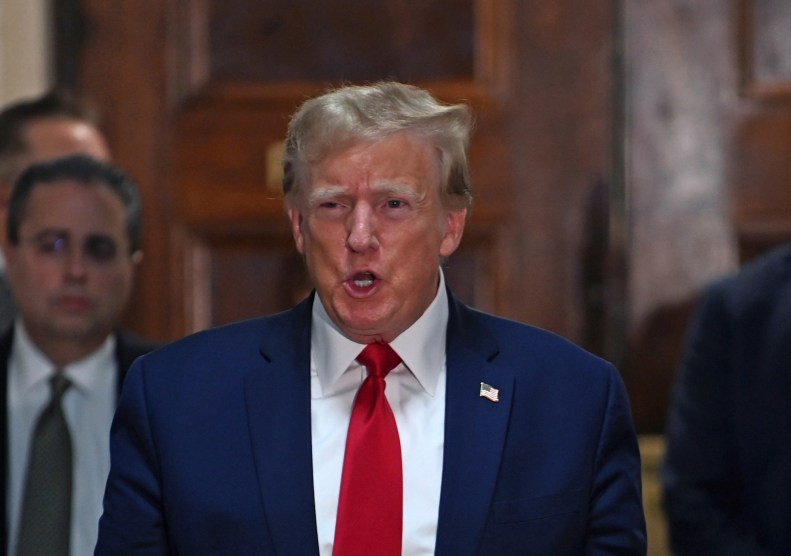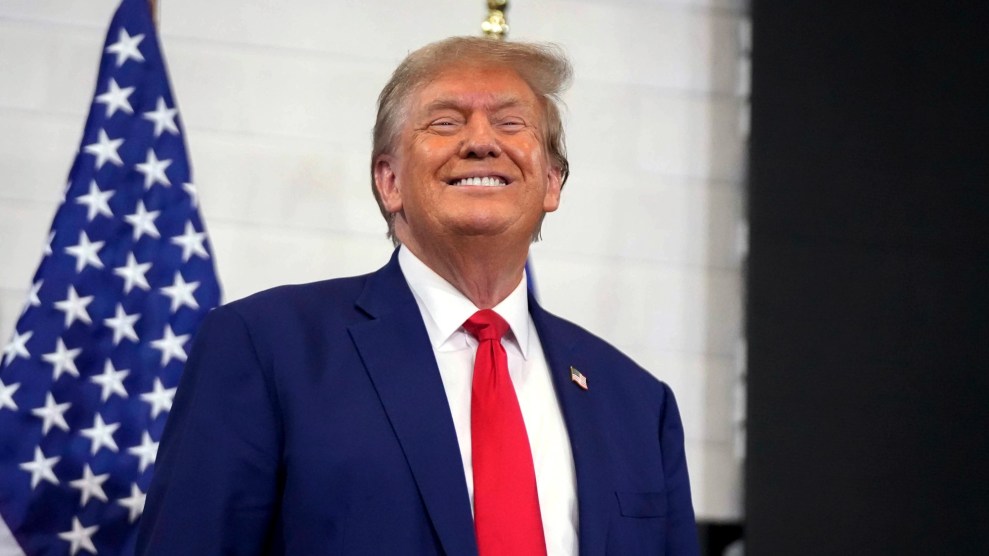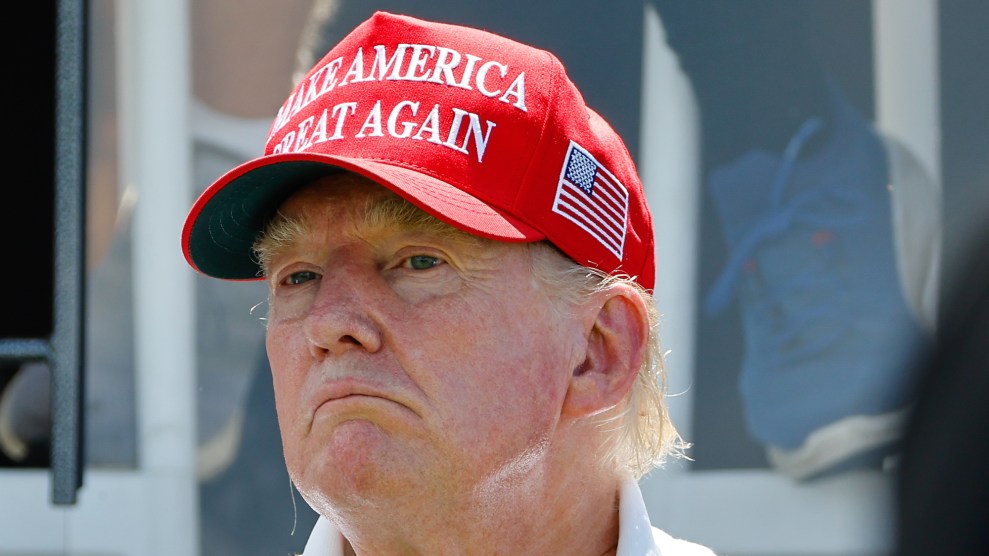
Andrea Renault/STAR MAX
Update, December 10: Donald Trump announced Sunday afternoon that he had changed his mind and will not testify in his own defense in his civil fraud case. “I have already testified to everything & have nothing more to say other than this is a complete & total election interference (Biden campaign!) witch hunt,” he wrote on Truth Social, his social media platform. “I will not be testifying on Monday.” (Editor’s note: All-caps removed to protect the reader’s eyes.)
On Friday, a federal appeals court upheld a gag order imposed on former President Donald Trump in his federal criminal case accusing him of plotting to overturn the 2020 election. The decision, which slightly loosened the trial judge’s original gag order, comes on the heels of a decision by a New York state appellate court’s decision that a gag order in his civil fraud trial in New York City also should stand.
In both cases, Trump has been accused of using his online platform and public appearances to try and whip up his supporters’ anger toward the judges, their courtroom staff, his legal adversaries, and even witnesses. On Monday morning, Trump will return to the courtroom in the New York case and take the stand—the finale of his defense in the case.
Trump’s previous appearances have been marked by his outbursts and a violation of the gag order. Throughout the New York case, Trump has accused the judge, Arthur Engoron, and New York Attorney General Letitia James, who brought the $250 million civil fraud lawsuit he is facing, of being partisan political hacks. But in early October, his criticism also turned to Engoron’s clerk, who sits beside the judge in court, accusing her of being partisan and posting her personal Instagram account on his Truth Social social media platform. The clerk began receiving death threats and harassing emails and phone calls, leading to an order by Engoron that Trump refrain from attacking courtroom staff—though Trump was allowed to criticize Engoron and James. But Trump has twice violated the gag order: once by not taking down previous criticisms of the clerk, and another time on October 24, when Trump attended the trial and then told reporters he was upset at the person next to the judge for being partisan.
Engoron forced Trump to take the stand and explain his comments, and Trump tried to say he had been referring to his former attorney and fixer, Michael Cohen, who had been on the witness stand that morning.
“As the trier of fact, I find that the witness is not credible, and that he was referring to my law clerk,” Engoron ruled. “I hereby fine you $10,000, which is on the liberal side, to be paid within 30 days.”
Later in the day, Trump stormed from the courtroom when Engoron didn’t rule in favor of him on a question. Trump’s testimony on Monday is likely to be fiery—and full of broadsides against Engoron and James. Trump has continued to blast both on social media, but in his previous appearances on the stand in the case he was there to answer questions posed by either Engoron or James’ team of attorneys. On Monday, he will be appearing as a witness for himself, and his attorneys—who themselves have often clashed with Engoron and James’ team—are likely to let him have free range to say what he wants. Despite being subjected to questions from James’ team in his last appearance, Trump spent much of his time trying to complain about how unfair he thought the case was, and at several points exploded at Engoron or James, pointing and shouting at them.
The gag order in the New York case was upheld late last month. A gag order in his federal case was imposed by federal district court judge Tanya Chutkan back in October, and was upheld Friday by the US Court of Appeals in Washington, DC. Like the gag order in the New York case, the federal gag order restricted Trump from criticizing members of the courtroom staff or employees of Jack Smith, the special prosecutor appointed to investigate Trump for federal crimes related to the January 6 storming of the Capitol and Trump’s handling of classified documents. The order allowed Trump to say he felt he was being politically persecuted, which the appellate court reinforced.
The appellate court also made it clear that beyond his general political grievances, Trump could specifically criticize both Smith and potential witnesses, unless it was about their roles in the case. When the gag order was originally imposed, Trump’s attorneys complained it would prevent him from criticizing his former Vice President Mike Pence, who is expected to testify against Trump, but who also was running against Trump for the GOP nomination.
While the underlying cases aren’t connected—the federal case is about January 6 and the New York case is about his years as a real estate developer in New York City and whether he lied to banks about the value of his assets—the two gag orders are connected. Prosecutors in the federal case filed their request for a gag order after Trump’s troubles with Engoron began, and cited his behavior—and his attacks on Engoron’s clerk—as evidence for the need for a gag order. When Trump violated Engoron’s order, federal prosecutors quickly passed on the details to Chutkan as evidence of his willingness to try use his political platform to try and disrupt legal proceedings or incite his followers.














